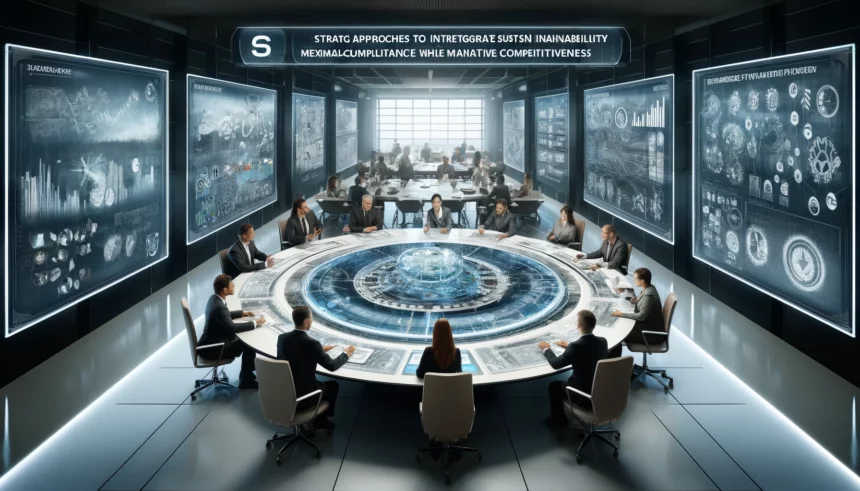With the planet at a critical environmental juncture, sustainability has become a crucial strategic consideration for companies worldwide.
Extreme weather events are occurring more frequently and lasting longer. Young people are demanding solutions to environmental issues. The financial community has realized that climate and other sustainability-related issues will significantly impact businesses.
However, many companies still struggle to understand what environmental and social sustainability means for them and how to integrate it into their strategy and operations. Here, I explore six strategic options for addressing the sustainability challenge.
Weighing Your Options
Every company needs to decide how much effort to put into environmental and social sustainability, beyond just complying with legal requirements. Factors like location, industry, corporate values, and consumer demands play a role in this decision.
1. Take the Low Road
This approach means doing the bare minimum to comply with laws in all the countries where your company operates. It involves reacting to changes in legislation, societal norms, or industry developments only when necessary.
- Pros: Legally safe and cost-effective in the short term.
- Cons: Long-term costs may rise due to late adaptations to new regulations. Employees might also push the limits of minimal compliance.
2. Wait and See
This strategy involves not only meeting current legal requirements but also monitoring evolving attitudes of employees, consumers, and the public, as well as upcoming legislation.
- Pros: Keeps the company prepared for future changes and helps gather valuable data on current performance.
- Cons: May require more resources to stay updated and ready for changes.
3. Show and Tell
Here, the company makes significant sustainability progress and includes it in its communications strategy. It’s about authentically sharing your sustainability journey, not just showcasing minimal efforts (greenwashing).
- Pros: Builds a positive public image and can enhance brand loyalty.
- Cons: Requires consistent commitment across all operations to avoid accusations of double standards.
4. Keep Quiet
Some companies do great work in sustainability but choose not to make it a focal point of their communications. They might publish sustainability reports and participate in initiatives but maintain a low profile.
- Pros: Avoids public scrutiny and potential backlash.
- Cons: Misses opportunities for positive publicity and stakeholder engagement.
5. Pay for Principle
In this approach, founders or lead shareholders steer the company towards sustainability based on their ethical beliefs. This is driven by a commitment to reduce pollution, protect landscapes, achieve carbon neutrality, and support communities.
- Pros: Can uncover market segments that value and are willing to pay for sustainable products.
- Cons: May initially lack a clear business case, relying instead on ethical motivations.
6. Think Ahead
This strategy involves planning for the future based on business logic. If your company has substantial assets like factories, aircraft, or trucks, it means starting today with pilot projects to gradually transform these assets over the next 10-20 years.
- Pros: Provides a clear, long-term plan for sustainability and reduces future costs.
- Cons: Requires significant upfront investment and detailed long-term planning.
Choosing the Right Path
So, which approach should your company take? It depends on your current position and future goals. Assess where you are now and where you want to be. Define your timeline and create a realistic plan to achieve your sustainability objectives.
Tips for Implementing Your Strategy
- Assess Current Performance: Gather data on your environmental and social impact.
- Engage Stakeholders: Include employees, customers, and shareholders in your sustainability journey.
- Set Clear Goals: Define short-term and long-term sustainability targets.
- Communicate Transparently: Share your progress and challenges openly.
- Be Flexible: Adapt your strategy as regulations and societal expectations evolve.
Sustainability is not just a trend; it’s a necessity. By choosing the right strategy, your company can contribute to a better future while also securing its long-term success.
















